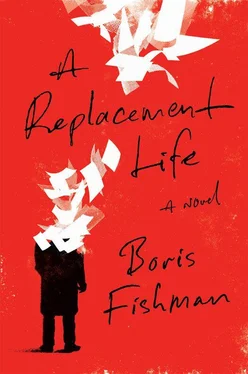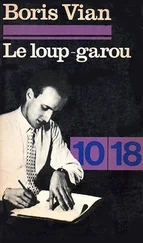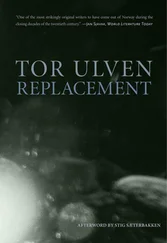To Henry Dunow. They say the right agent is like the right relationship — elusive until it finally happens, and then it feels destined. Thank you, Henry. You are so good at what you do, and you are such a class act while doing it. You have my gratitude and admiration. Thanks as well to Betsy Lerner and Yishai Seidman.
To Terry Karten for a rare kind of patronage; for having faith, wisdom, vision, and a flawless touch. You gave an incredible blessing, and the way you steer is a model and inspiration.
Thanks as well to Elena Lappin, who has been an exceedingly generous and incisive champion of this book.
Finally, to the walking wounded who survived the degradations of a life in the Soviet Union. For all their warts, they, too, are survivors.
The pagination of this electronic edition does not match the edition from which it was created. To locate a specific passage, please use your ebook reader’s search tools.
The line between fact and fiction, invention and theft, is as loose as the line between truth and justice. My adopted culture knows this in practice but forgets it in theory — we are transgressives in private and puritans when caught, itself a savory self-deception. This affects literature as much as politics or mortgage lending. Sometimes we struggle to remember that fiction is often nonfiction warped by artifice, and nonfiction unavoidably a reinvention of what actually happened. (I am stealing these words from myself, from a book review I once wrote.) There are lines, of course, but they’re further out than we think. Life is sin and art is theft. Let mine in this novel register as a reminder of this, as well as a tribute to authors who have said something of meaning to me.
22 The line “Every morning, the Soviet men shrouded themselves in Soviet linens and mongreled into the soft air of Tyrrhenian fall: ‘Russo producto! Russo producto!’” appeared previously in a piece I wrote, “Paid in Persimmons,” in Departures magazine (October 2007).
52 “He studied the treacherous slingshot of Arianna’s clavicle” is gratefully stolen from Kseniya Melnik. A different version of the expression appears in the story “Kruchina,” in Snow in May: Stories (Henry Holt, 2014): “Masha looked at Katya’s thin neck sticking out of the collar of her nightgown, the slingshot fork of her clavicle and ropy shoulder, the pollen sprinkling of freckles, just like her mother’s.”
106 “August, / you’re [just] an erotic hallucination” is from Denis Johnson’s poem “Heat,” in The Incognito Lounge and Other Poems (Carnegie Mellon University Press, 1994).
152 “The lilac fog / sails above our heads” is from “Don’t Rush, Conductor,” a Russian pop song by Vladimir Markin.
163 “Expensive Trips Nowhere” is the title of a story by Tom Bissell, in God Lives in St. Petersburg and Other Stories (Pantheon, 2005).
165 The phrase “stocking of smoke” comes from the story “Islands” in Aleksandar Hemon’s collection The Question of Bruno (Nan A. Talese/Doubleday, 2000).
208 The third false Holocaust narrative is a version of a story that became widely known after the war. I learned of it, in addition to other valuable details, from David Guy’s book ( Innocence in Hell: The Life, Struggle, and Death of the Minsk Ghetto , trans. Nina Genn, self-published, New York, 2004).
224 “[Her eyes] were gray, a shining gray, though they seemed darker because of their thick lashes” is a variation on Anna Karenina (Leo Tolstoy, Anna Karenina , trans. Richard Pevear and Larissa Volokhonsky, Penguin Classics, 2004). The original sentence reads, “Her shining grey eyes, which seemed dark because of their thick lashes, rested amiably and attentively on his face…”
254 “I am a finished man… The sun must be the sun first of all” is from Fyodor Dostoyevsky’s Crime and Punishment , translated by Larissa Volokhonsky and Richard Pevear (Vintage, 2012).
254 “Be true to your own strange kind” is a variation on Louis Simpson’s poem “The Cradle Trap” in At the End of the Open Road: Poems (Wesleyan University Press, 1963). The original reads, “Be true, be true / To your own strange kind.”
262 “Better to permit a guilty conscience to keep walking around, to increase the weight of its guilt!”: Dostoyevsky, Crime and Punishment .
263 “They say that at Sevastopol, the people were in a terrible fright that the enemy would attack openly and take Sevastopol immediately. But when they saw that the enemy preferred a regular siege, they were delighted! The thing would drag on for two months at least, and they could relax!”: Ibid.
280 The italicized words in “This was what awaited, the dark collapse between Vera’s legs said” is from Chang-Rae Lee’s Native Speaker (Riverhead, 1996).
281 “If you say there are elephants flying outside your window, no one will believe you. But if you say there are six elephants flying outside your window, it’s a different story” is a variation on Gabriel García Márquez, “The Art of Fiction, No. 69, Gabriel García Márquez,” interview by Peter H. Stone, in The Paris Review, no. 82 (Winter 1981). There is no indication who translated the interview. The original reads, “For example, if you say that there are elephants flying in the sky, people are not going to believe you. But if you say that there are four hundred and twenty-five elephants flying in the sky, people will probably believe you.”
292 “The tea was bitter and he blamed existence” is a variation on Bernard Malamud, The Fixer (Farrar, Straus and Giroux, 2004). In the original phrasing—“It tasted bitter and he blamed existence”—the “it” does refer to tea.
297 “Slava could have risen and gone four ways at once”: Dostoyevsky, Crime and Punishment .
299 “I have read that a good investigator begins from far away… And then he jumps like a jaguar!”: Ibid.
311 “Now she snaps her wings open, and floats away” is from Mary Oliver’s poem “The Summer Day” in New and Selected Poems (Beacon Press, 1992).
BORIS FISHMANwas born in Belarus and immigrated to the United States at the age of nine. His journalism, essays, and criticism have appeared in the New Yorker , the New York Times Magazine , the New Republic , the Wall Street Journal , the London Review of Books , and other publications. He is the editor of Wild East: Stories from the Last Frontier , an anthology about Eastern Europe after the fall of Communism, and the recipient of fellowships from the New York Foundation for the Arts and the Fine Arts Work Center, among others. He lives in New York City. A Replacement Life is his first novel.
www.borisfishman.com
Visit www.AuthorTracker.com for exclusive informationon your favorite HarperCollins authors.











